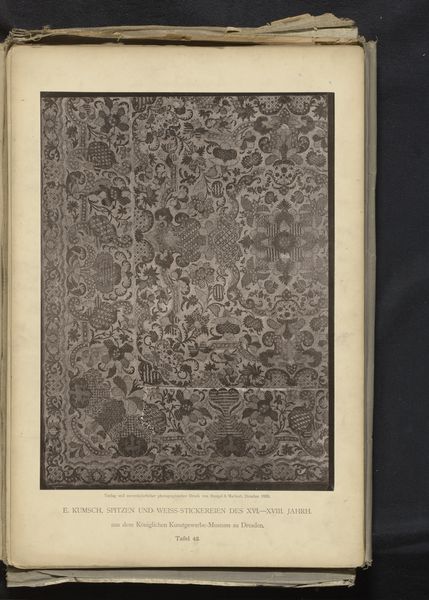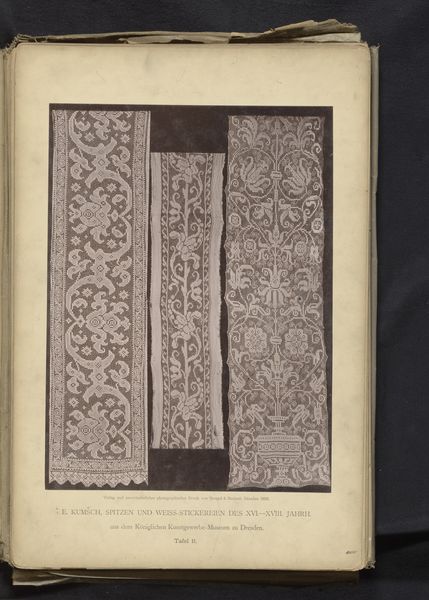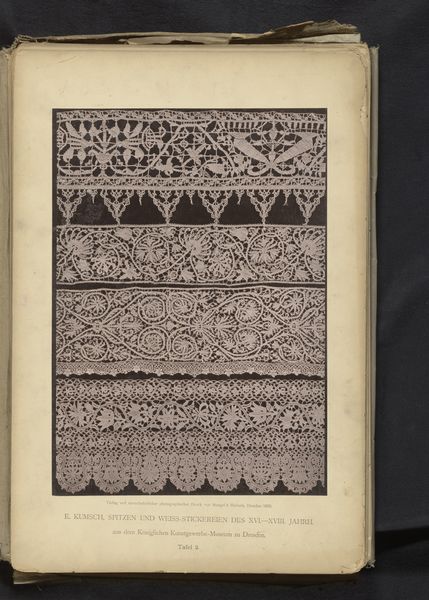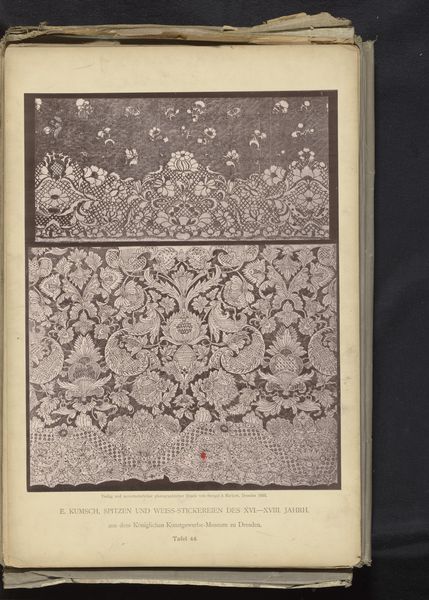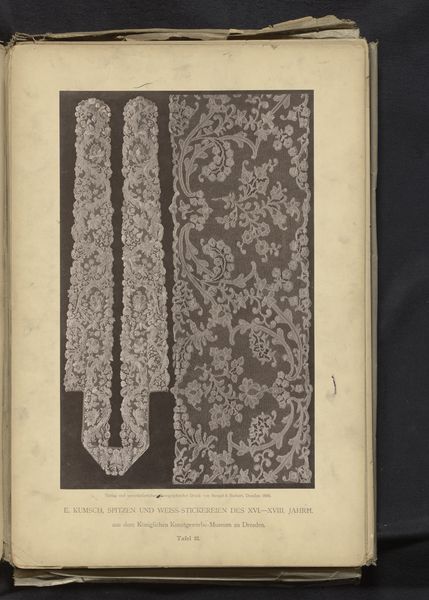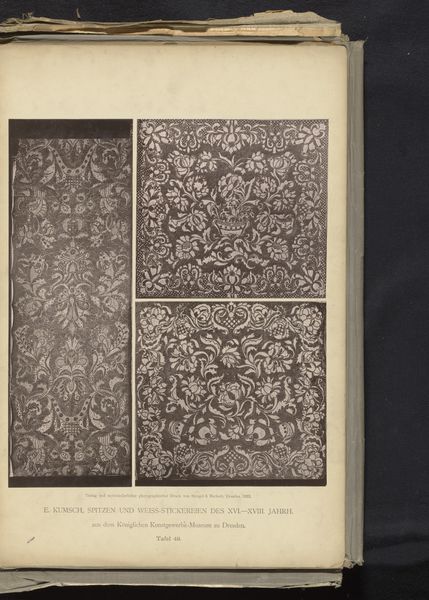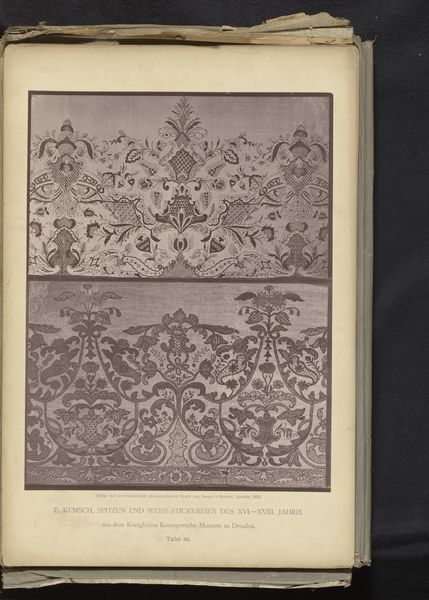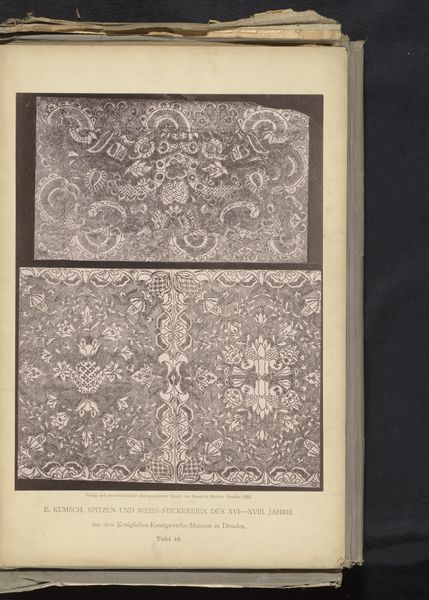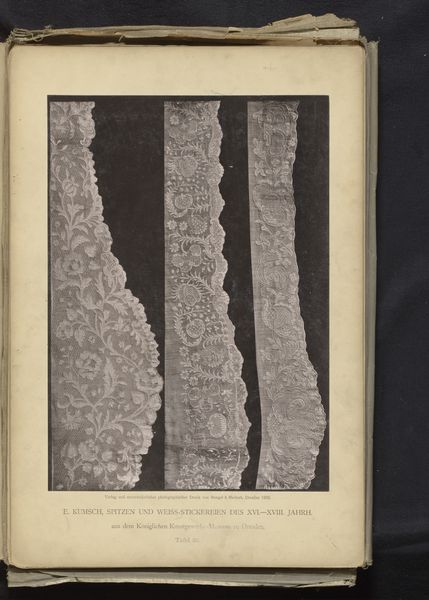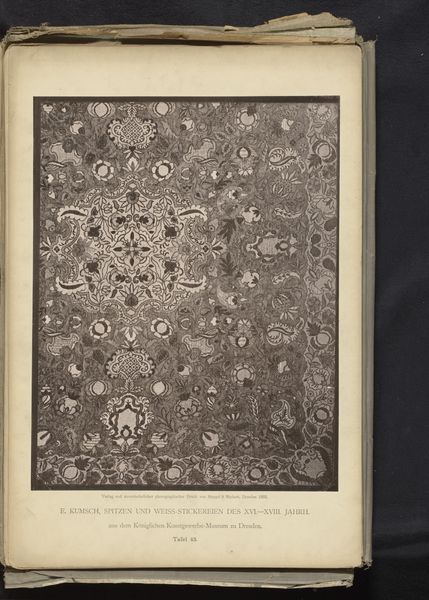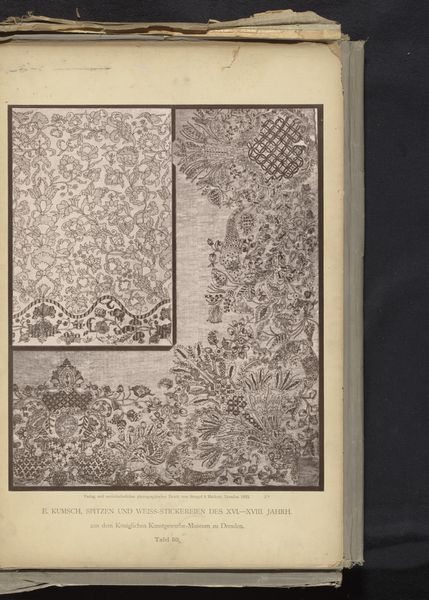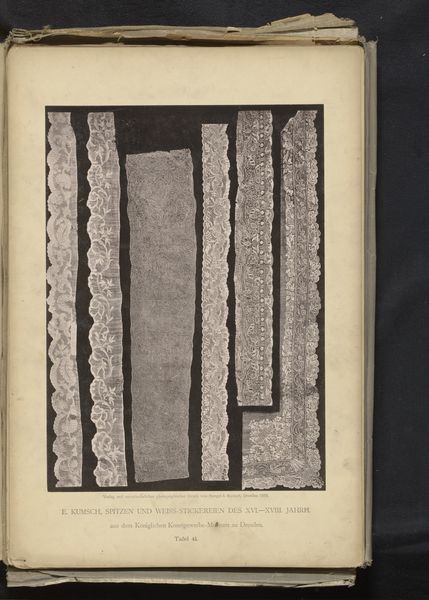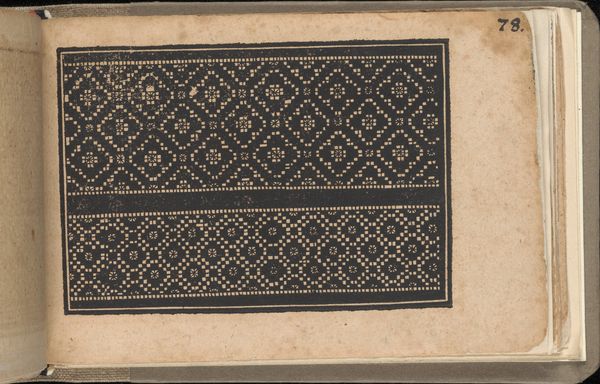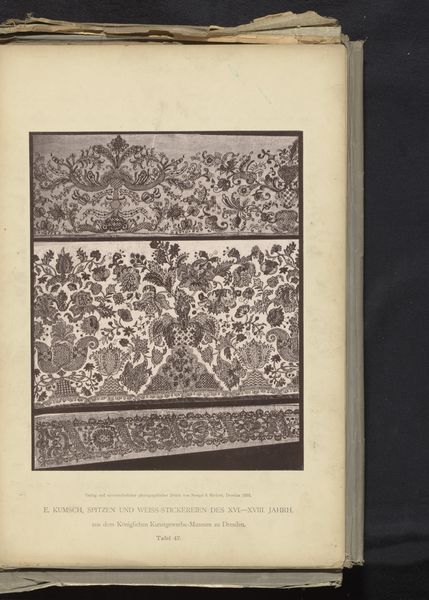
Twee stukken 17de-eeuws kant geproduceerd in Venetië, uit de collectie van het Kunstgewerbemuseum in Dresden 1888
0:00
0:00
anonymous
Rijksmuseum
print, photography
# print
#
photography
Dimensions: height 358 mm, width 257 mm
Copyright: Rijks Museum: Open Domain
These two pieces of 17th-century lace were produced in Venice, and are now held in the Kunstgewerbemuseum in Dresden. Created anonymously, they offer insight into the labour-intensive process of lacemaking during that period. The material influence here is paramount. Delicate linen thread, worked with needles and pins, transforms into intricate patterns. The weight and drape of the finished lace hints at its original purpose, likely adorning the collars or cuffs of wealthy Europeans. Venetian lace was renowned for its quality, which relied on highly skilled workforces. The creation of such intricate textiles involved specialized knowledge and techniques passed down through generations of women, often working within convent workshops or as part of cottage industries. Each piece represents countless hours of meticulous labour. Considering these pieces, we recognize the importance of materials, making, and the specific social context in understanding the full meaning of the artwork. The delicate beauty of the lace belies the complex histories of labour, trade, and consumption that shaped its creation.
Comments
No comments
Be the first to comment and join the conversation on the ultimate creative platform.
